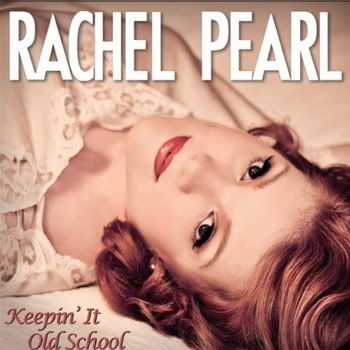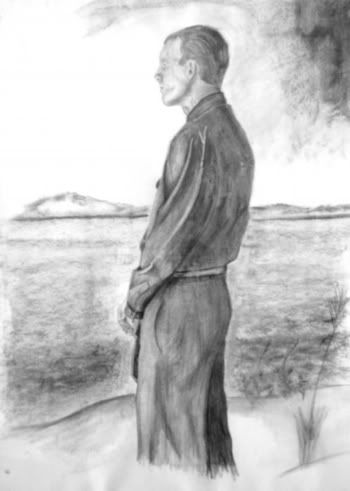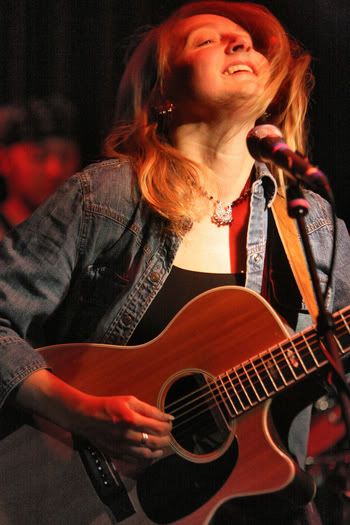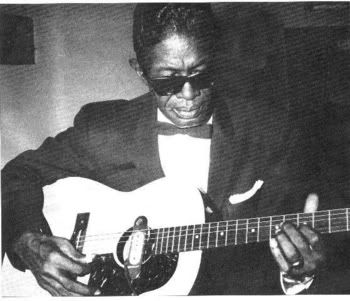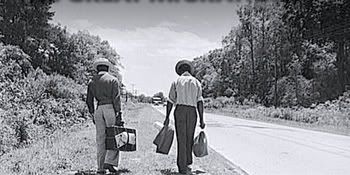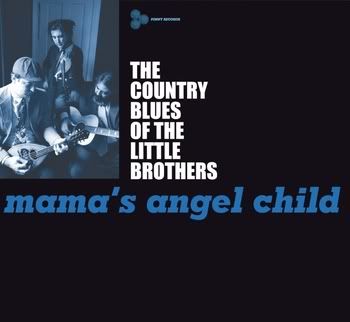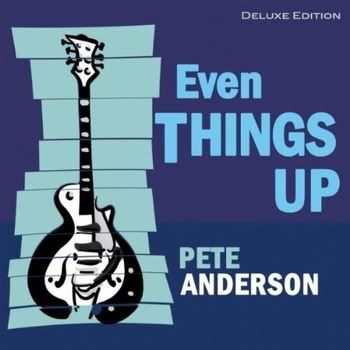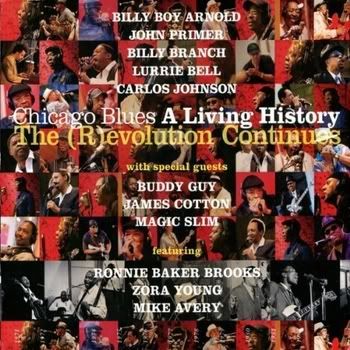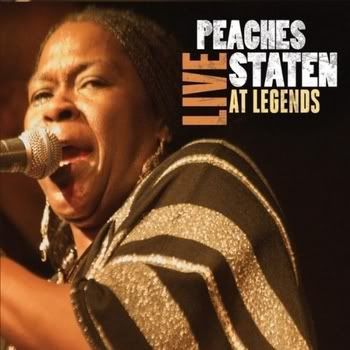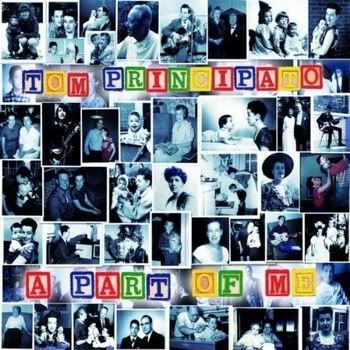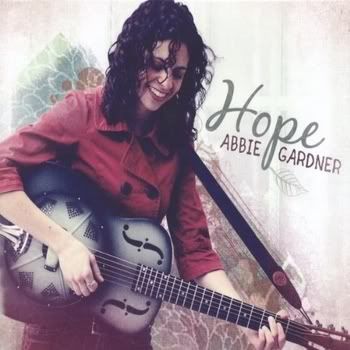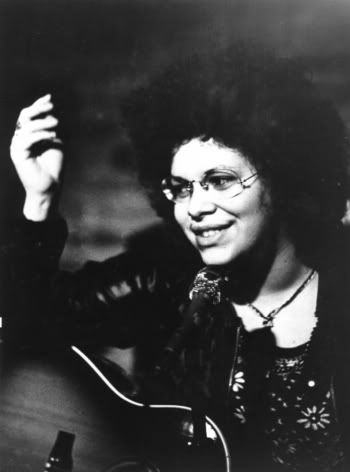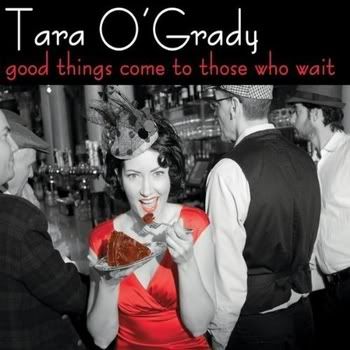
[purchase]
I am very pleased to present to you Tara O’Grady’s new album, Good Things Come to Those Who Wait. As you know if you have been reading this blog for a while, last year I started spotlighting artists who were having fund drives to make their next albums. Of the various drives I have featured so far, O’Grady’s was the first to produce an album. So Good Things Come to Those Who Wait is an album that some of you may have helped make. I thank you for that, because it’s a good one.
For now, Tara O’Grady is a jazz singer. I say for now, because some of Good Things suggests that she has other options. Her backing band includes the drums, stand-up bass, and piano that you would expect. But there is also acoustic guitar, harmonica, fiddle, accordion, even tin whistle. So O’Grady is not afraid to bend the rules, but she and her band make this all sound natural. O’Grady sings in a dramatic alto that can sound like some of Aretha Franklin’s jazzier moments. This voice is something of a pose, and she drops it for a bonus track in which she sings in a poppier voice. To call her vocal a style a pose is not a criticism here; it perfectly suits what she is after. Good Things is a collection of songs of idealized romance. These are not songs of experience, but rather of imagination. O’Grady sometimes winks at the listener to let us know that she understands that love isn’t really like this, but she captures the dream beautifully more often than not.
This separation of dream from reality is never clearer than in the song Let Me Be Your Audrey. Audrey is Audrey Hepburn, and the lyrics make references to some of her movies. O’Grady knows that she is offering a fantasy here, and she makes it sound very appealing. Some of the best moments on this album come in songs that mix this dream quality with romantic yearning. Shadow Blues opens the album with a woman who wants one name to fill out her dance card for the rest of her life. Later, November Moon is a gorgeous ballad with some Irish touches, concerning a woman who may be losing her lover. Tara O’Grady wrote all of the lyrics here with two exceptions. Trouble in Mind is a cover of the classic blues song. Think of Me is another musical wink on O’Grady’s part. The words are excerpted from a poem by Thomas Hood, Lines to a Lady on Her Departure for India. Hood describes a series of extreme situations, and asks the lady to “Think of Me”. There is an element of absurdity about the whole thing, and O’Grady delivers this perfectly by singing the song straight up as a ballad of romantic yearning. The poem is actually a satire of an earlier work by Thomas Hood’s brother-in-law, John Hamilton Reynolds.
I mentioned that O’Grady has other options besides jazz. Waiting For You has the sound of an early soul ballad, and it is one of the most powerful vocals on the album. Goodnight Nora is a beautiful duet and a lullaby of the love of two newlyweds. The male singer is Alan Bennett. I have to say that I would love to hear this one recorded again; Bennett is not a bad singer, but his voice and O’Grady’s are not well matched. The song is wonderful, and deserves a better treatment. Goodnight Nora should have been the last song on the album. It is followed by a bonus track, Love on the Underground. This is a tale of an almost-encounter on the subway in New York City. O’Grady uses her voice here very differently than she does anywhere else on the album. She goes for a light tone, and the whole thing sounds like what Bare Naked Ladies might come up with if they wrote a love song. I found the song enjoyable, but it belongs on a different album. The rest of the album casts a wonderful romantic glow, and powerfully evokes a time that is either long gone or never existed at all. It is a world that appeals in the same way as a well constructed world in a fantasy novel. O’Grady’s playfulness only makes it more appealing. I can’t wait to hear what she does next.
Tara O‘Grady: Shadow Blues
Tara O‘Grady: November Moon



